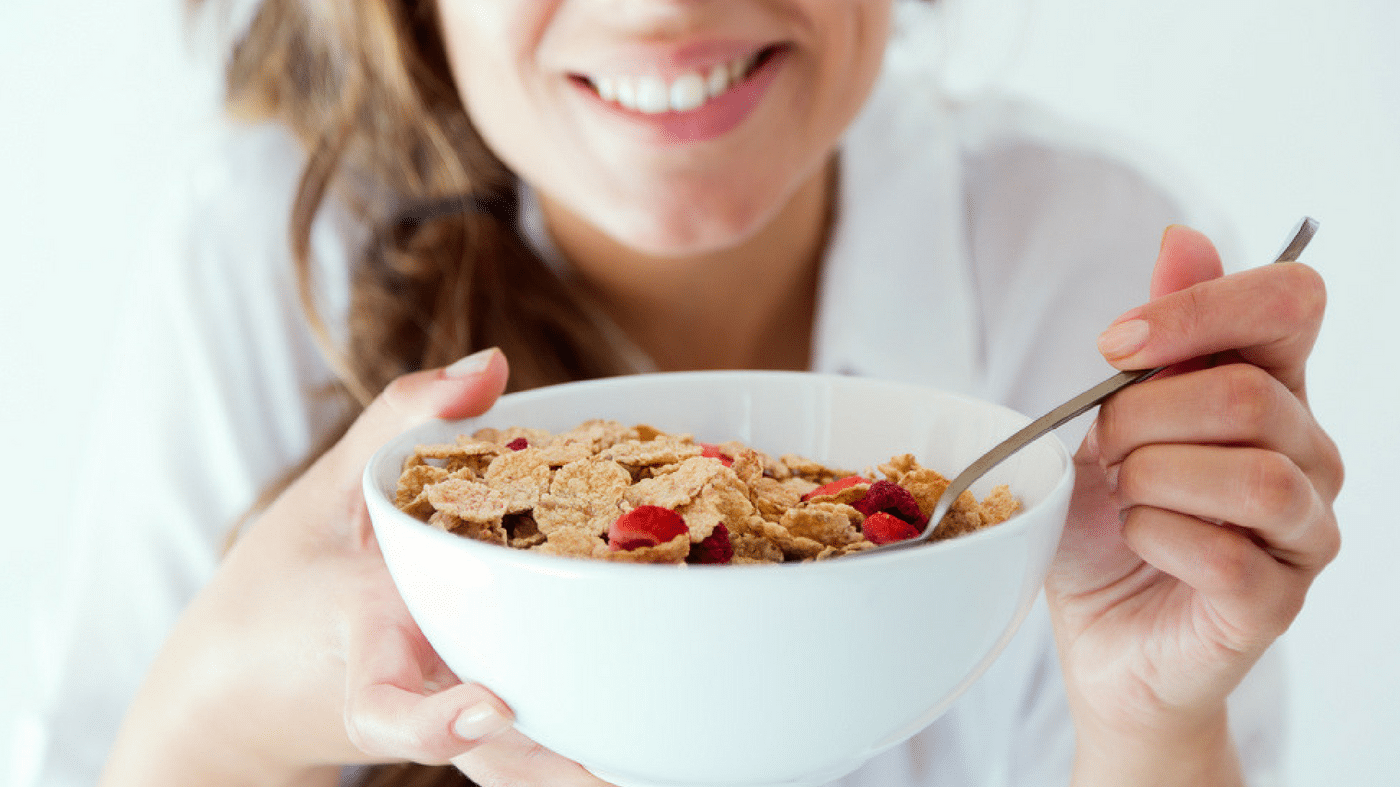September 9, 2011
Until my senior year of college, I started every day with a big bowl of cereal and 2% milk.
And I didn't just use any old cereal.
I went for the stuff that turned my leftover milk into a sweet and gooey ambrosia of sugary soup. Peanut Butter Captain Crunch was the usual choice, and Cocoa Pebbles were not far behind. Apple Jacks was another favorite, and sometimes I used apple juice concentrate instead of milk for my Apple Jacks, just to amplify the sweet apple taste just a little bit more.
By the time I finished a breakfast like this, I was ready to conquer the world!
For about 30 minutes…
…after which, I crashed – usually during a class or a meeting.
But even if you consider yourself a healthy progressive who is way beyond the realm of eating cereal from boxes with cartoon characters on the front, you need to be aware of serious issues with what many perceive to be “healthy” cereal.
In other words, you may need to face up to the fact that Wheaties is not the best “Breakfast of Champions”.
Especially the “wheat” part of Wheaties. Allow me to explain.
Most wheat that we eat today is just a product of genetic research.
Not only is this modern wheat far genetically far removed from what our ancestors ate thousands of years ago, and thus far more capable of causing inflammation in our gut, but certain components of wheat cause it to raise blood sugar higher than nearly any other carbohydrate you can eat.
But the issue with grains in breakfast cereal goes beyond wheat's capability to cause digestive inflammation or to massively spike your blood sugar levels. Even if you don't have something like Celiac disease or gluten intolerance, the gluten in wheat-based cereals may not be the hottest food ingredient for you to be starting your day with.
Undiagnosed gluten sensitivity runs rampant, and 99% of people who are gluten insensitive don't even know it (even though it is easily tested with a GI Panel)
A review paper in The New England Journal of Medicine listed 55 “diseases” that can be caused by eating gluten, including osteoporosis, inflammatory bowel disease, anemia, cancer, fatigue, canker sores, rheumatoid arthritis, lupus, multiple sclerosis, and nearly every autoimmune disease.
Gluten is also linked to many psychiatric and neurological issues, such as migraines, epilepsy, nerve damage, autism, anxiety, depression and schizophrenia.
So why not just go gluten-free?
At the risk of turning this into a complete breakfast cereal bashing post, I want to also make sure you're aware that just because a cereal is gluten-free and wheat-free does not necessarily healthy.
In Podcast #157, I talk about the issue with gluten-free cereals, and basically what I mentioned was that popular gluten-free cereals.
Not only are gluten-free foods primarily made with corn starch, rice starch, potato starch, and tapioca starch, which are the only foods capable of spiking your blood sugar levels even higher than wheat, but they typically have added sugars as well.
Here are the ingredients of some popular gluten-free “healthy” cereals:
Kellogg's Rice Krispies gluten free cereal is brown rice and sugar. That's it. No protein, no fat, just pure sugar.
Chex Gluten-Free Rice Chex is also just rice and sugar, but they've also added molasses.
Nature's Path Organic (insert sounds of angelic choir here) is Organic Brown Rice, Organic Evaporated Cane Juice and Organic Molasses.
And “granola” as a cereal alternative is not much better.
Basically, granola is also primarily sugar, but with added vegetable oils and nuts, typically roasted and very high in inflammatory omega 6 fatty acids.
For example, Kirkland's Organic Ancient Grains Granola is “made with love” and comprised of oats, cane sugar, spelt, soy oil, wheat, almonds, inulin, quinoa, amaranth, rice starch, sea salt, molasses and cinnamon.
So, now that you're hopefully reconsidering eating a bowl of cereal every morning, you may be wondering what should go into a healthy breakfast?
You're going to find out this Sunday, when I give you the three criteria you need for making a healthy breakfast, and I also give you my top 5 healthy breakfast choices.
In the meantime, feel free to push away that bowl of cereal and leave your comments, questions and feedback below.


I believe it is widely recognized that most rice products contain a certain amount of arsenic, which naturally leeches from the ground in rice patties into the grain. So how dangerous is it to eat my daily bowl of rice chex (about 3/4 cup.)?
I can't appropriately say how dangerous, but I do believe some level of arsenic has been found in Chex. May be wise to find an alternative treat.
Rice Chex and Rice Krispies both have two grams of sugar per serving, quite low for a cereal. Some people are actually active and have higher calorie and carbohydrate needs than the average inactive person. They can’t be eating green vegetables all the time, or they’d spend an inordinate amount of time going to the bathroom and wouldn’t get the energy they require. These are two of the best cereals for someone who’s getting all their nutiritional needs elsewhere but still need low-fat energy.
And if you’re crashing shortly after eating a high sugar meal, that’s indicative of you having hypoglycemia or being diabetic.
I was given package of Kirklands ancient grains and noticed the amount of sugar added. What Gluten free alternative can I add to my plain greek yogurt that will not increase sugar?
Looking forward to your response.
Thank you from first time subscriber.
I'm really digging Thrive Coconut Flakes Cereal right now: https://thrivemarket.com/ben
I can’t even imagine how many calories of sugar I’ve been demolishing all these years. I’ve just recently started trying to eat clean which means reading everything. I feel so misled. It makes me angry to think how we are deceived into thinking we are eating healthily.meanwhile we can’t figure out why we are gaining weight!